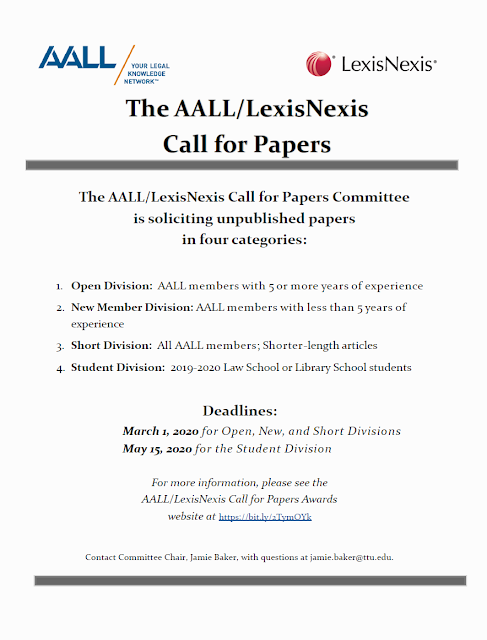When a 3L Says, "I didn't know we had a law library."
After starting a new position, it's always a good idea to evaluate the programming at your new institution and possibly bring experiences and programming initiatives along from your previous institution.
At my last institution, I was a reference librarian, and I also taught a full-length course on scholarly writing. When I arrived at my new institution, I noticed a hole in the curriculum when it came to instructing the students on best practices for scholarly writing.
Because many of our students take part in seminar courses or the journal write-on competitions each year, it seemed natural to start a scholarly writing initiative at my new institution.
Starting Fall 2016, two new scholarly writing programs were introduced by the law library. The first was a Scribes Student Legal Writing Society group. As the Executive Director of Scribes, I was tasked with starting local chapters of this group at the various law schools. The first year would be a pilot year with two law schools taking part. As part of the Texas Tech Law Chapter, the legal writing faculty, specialists, and law library faculty came together to provide monthly programming to the students that coincided with the timeline for writing a journal note, seminar paper, or independent-research paper.
We created a toolkit of programming materials, and the events have generally been well attended. We've had quite a few students tell us that their seminar-paper grades were much higher after attending the sessions and incorporating the various best practices.
The other scholarly writing program introduced this year was to incorporate the law library in seminar course instruction. Each semester, I identify the faculty members who are teaching seminar courses, and I email an overview of the instruction materials to remind them of the program.
The seminar course instruction consists of
- Developing a thesis
- The parts of the paper
- Researching the particular subject
- Attribution and plagiarism (The Bluebook)
Additionally, for each course, we create a research guide that provides this information and points to helpful sources for the individual course topic.
After a successful seminar session this morning, a 3L said, "I didn't even know we had a law library. It's too bad I didn't know about it sooner." Part of the point of these sessions is to perform outreach and show the value of the law library. We are also making great strides in the quality of our programming to 1Ls and our voluntary Excellence in Legal Research program to reach the students earlier.
With new associates spending upwards of 30% of their time doing legal research, it's imperative that we show the students early and often that the law library has a true value to their legal education.



Comments
Post a Comment